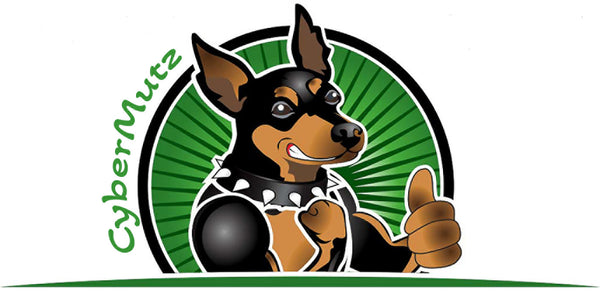
Do Dogs Hold Grudges? Understanding Canine Memory and Emotions
Share
Do Dogs Hold Grudges? Understanding Canine Memory and Emotions
Have you ever tripped over your dog or raised your voice during a frustrating moment—only to be met with “the look”? You know the one. The sad eyes. The dramatic sigh. The sudden distance. It’s easy to wonder: Is my dog mad at me? Even worse—is my dog holding a grudge?
Let’s dig into the science behind canine memory and emotions to find out what’s really going on in that furry little head.
🧠 How Dog Memory Works
Unlike humans, dogs don’t remember things the way we do. They don’t store detailed episodes or events in chronological order. Instead, they rely heavily on associative memory—connecting experiences with emotions or outcomes.
For example, your pup doesn’t remember their birthday party from last year, but they absolutely remember that the sound of your car means you’re coming home (and it’s time to get excited!).
Dogs Have:
-
Short-term memory that lasts seconds to minutes
-
Long-term associative memory that ties actions to outcomes
-
No evidence of episodic memory like humans have
So if you accidentally step on their paw, they’re not “replaying” that moment later—they’re reacting based on how safe or unsafe they feel afterward.
❤️ Do Dogs Feel Emotions Like We Do?
Dogs absolutely feel a wide range of emotions: joy, fear, anxiety, affection, and even jealousy. What they don’t appear to feel—according to most animal behaviorists—is complex emotions like resentment or spite.
That means dogs don’t hold grudges in the human sense. When your dog sulks or avoids you, it’s not because they’re plotting revenge—it’s because their trust was shaken, even if just a little.
We often project human emotions onto our pets (a phenomenon called anthropomorphism), which makes it feel like they’re “mad.” In reality, they may just be scared, confused, or cautious.
🐕 Why Dogs
Seem
to Hold Grudges
So why does your dog sometimes act like they’re giving you the cold shoulder?
It’s all about behavior. Dogs respond to body language, tone of voice, and past experiences. If they associate a particular action (like being yelled at or startled) with discomfort or fear, they may temporarily withdraw.
That’s not a grudge—it’s a defensive response. They’re protecting themselves the only way they know how.
Common Reactions:
-
Avoiding eye contact
-
Hiding or keeping distance
-
Ignoring commands
-
Hesitating to engage in play or touch
These behaviors often fade quickly with reassurance and patience.
🛠️ Rebuilding Trust After a Negative Experience
If you think you’ve hurt your dog’s feelings, don’t worry—dogs are forgiving by nature. But rebuilding trust is all about consistency and positivity.
Here’s how:
-
Use a calm voice and relaxed body language
-
Offer treats or playtime to create new positive associations
-
Avoid repeating the negative trigger
-
Stick to routines that create a sense of safety
If the behavior continues for days or worsens, consider consulting a vet or certified trainer to rule out trauma, pain, or anxiety.
🙋 Can You Apologize to a Dog?
Yes—and no. Dogs won’t understand your words, but they will 100% pick up on your tone, posture, and actions.
Rather than saying “sorry,” show it:
-
Sit down near them calmly
-
Let them come to you
-
Offer gentle pets or treats
-
Rebuild the bond with kindness and consistency
Your dog doesn’t want a verbal apology—they want to feel safe again.
🐾 Conclusion: Grudges? No. Emotions? Absolutely.
Your dog isn’t holding a grudge. They’re just reacting to the emotional environment you create. Trust and safety are everything in your bond, and the good news is—dogs are some of the most forgiving creatures on the planet.
So go ahead, give them a treat, a cuddle, and a little extra playtime. They may not remember the bad moment, but they’ll always remember how much you love them.
✅ Quick Recap:
-
Dogs don’t have episodic memory like humans
